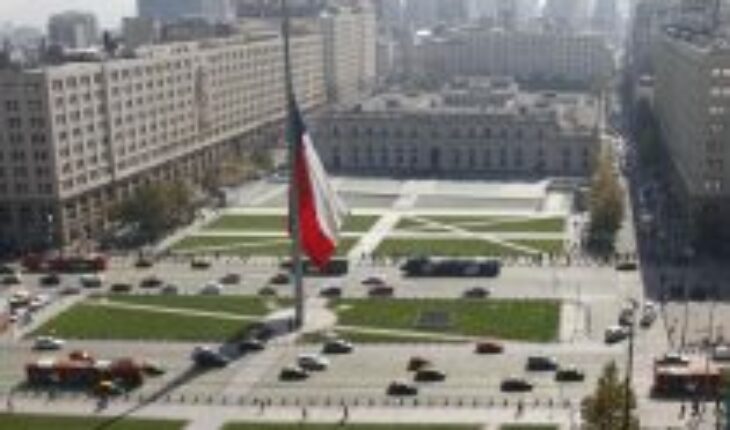In the last elections, reducing the number of political operators in the State was one of the actions that the different candidacies indicated as urgent and relevant to implement as soon as they assumed the Government. In this sense, there is a general conception that any discretionary appointment corresponds to a political operator; however, in reality, this type of recruitment into the state structure can give rise to many other transcendental democratic functions, such as implementing public policies, articulating relationships between various ministries, among others. From the Social Sciences, these practices have been extensively studied by the political literature, defining them as “clientelism” or “patronage”.
However, patronage is a phenomenon that has been constantly present in the democracies of the world. Indeed, Max Weber – in his famous text Politics as a Vocation – pointed out that the objective of political parties in plebiscitary democracies was the conquest of power by vote. Such a conquest, in turn, would endow political parties with the necessary legitimacy to appoint their members at the various levels of the state bureaucracy. However, it should be noted that this is not the only way in which state bureaucracies are recruited.
On the one hand, there is the professional form, a process that responds to normative standards and that, therefore, is formally based on principles of meritocracy and transparency. On the other hand, there is the form of patronage, a recruitment mechanism in which political parties play a crucial role. In this, the appointments are based on political criteria with the objective, among others, of better controlling the policies that are implemented, since it is assumed that these officials have a greater commitment to the program and the government administration.
In practice, both forms of recruitment overlap, often with one form prevailing over the other. In the case of Chile, and based on studies at the national and local level that we have developed on this subject from the Catholic University of Temuco, political appointment or patronage cannot be reduced to the mere fact of appointing political operators in the State. Studies show that there is a heterogeneity of patronage in the Chilean state bureaucracy: there are differences according to the functions to be fulfilled, the characteristics of the designated or the designated and the hierarchical level where the appointment is made.
With respect to the functions performed by the appointees, we find three main functions: first, to obtain electoral gains, which would be a form of patronage that would contain elements and dynamics of political clientelism and whose purpose is to reward militants and execute electoral politics. Second, to ensure that the government and its officials act according to the guidelines of the political party or the authority of the day, articulating and controlling the bureaucracy. And, third, design and implement public policies.
With regard to the characteristics of the appointee, for example, for the first function – focused on the electoral – the articulators and political clients would prevail; for the second – oriented to the functioning of the Government – the so-called operators, cadres and commissioners would prevail; for the third function – oriented to public policies – possessors of expert knowledge, such as technocrats and technopols.
With regard to the hierarchical level, studies carried out both at the national level (Moya and Garrido, 2019) and at the regional level (Moya et al., 2021) show that at all levels of the bureaucratic structure – whether national or regional – there are political designations, but there is no homogeneous type of patronage in the Chilean public administration. In fact, this varies according to the hierarchical level that is analyzed. Thus, at the high level, there is a patronage associated with technocrats and technopols, who mobilize managerial resources, but who also have the capacity to articulate. At the middle hierarchical level, there is a patronage associated with political operators and that mobilizes mainly organizational resources. Finally, at the lower hierarchical level, it is possible to make visible a patronage related to clients and militants of political parties that mobilize electoral resources.
Previous studiesIt is also pointed out that political parties are important in appointments, but that they have lost relevance since the return of democracy. Parliamentarians, NGOs, think tanks and guilds are actors who have come to dispute the area of influence and incidence of appointments to political parties. Similarly, at the national level, the presidential figure has played a key role in the appointments in the period analyzed, as well as personal trust (more than partisan) appears as an important criterion when it comes to appointments, specifically, at the high hierarchical level.
At the regional level, the situation is similar with respect to the profile of the persons being appointed. For example, the figure of the technopol it is highly regarded, being people who bring together both technical and political skills. However, party leaders and members who have previously worked in electoral periods are often privileged in order to ensure the connection between the party and the voters. The nominees respond mostly to a personal rather than political trust, above all, of the parliamentarians of the region: although the political parties appoint people to ensure power, it is required that such appointments have the permission of the parliamentarians rather than the political party, specifically in favor of the senators or deputies. This practice, in turn, responds to the objective of protecting the interests of the parliamentarian, assuring them of electoral support.
What is the problem with patronage? Not the fact that it exists, but the fact that there is a poorly controlled patronage. In this sense, its lack of control would directly affect public management, since it could prevent a professionalization of state officials, affecting the efficiency and effectiveness of the Work of the State. The problem, then, originates when appointed officials do not necessarily possess the skills and competencies to perform the public function for which they are responsible. When this happens, the distrust of citizens increases and the perception of corruption in political appointments in the State grows.
The content expressed in this opinion column is the sole responsibility of its author, and does not necessarily reflect the editorial line or position of El Mostrador.
Political appointments: are they just about political operators?
December 23, 2021 |





